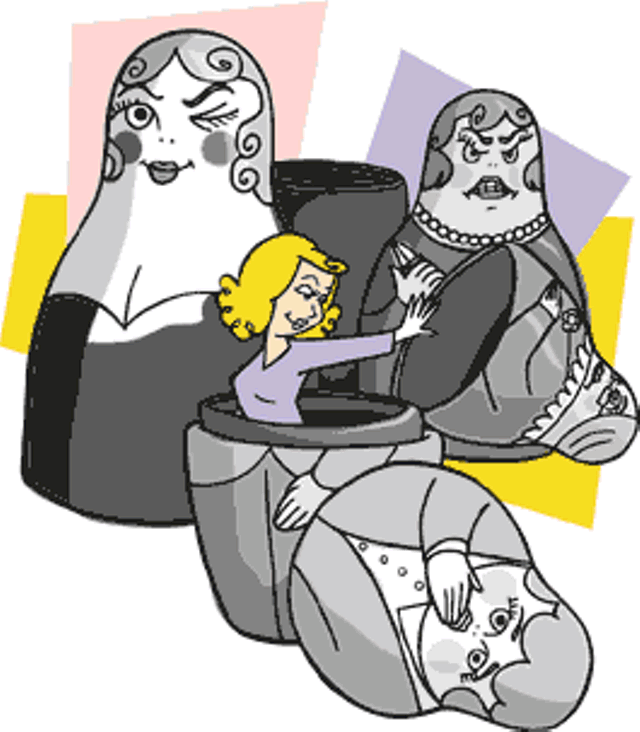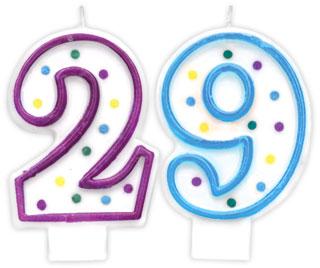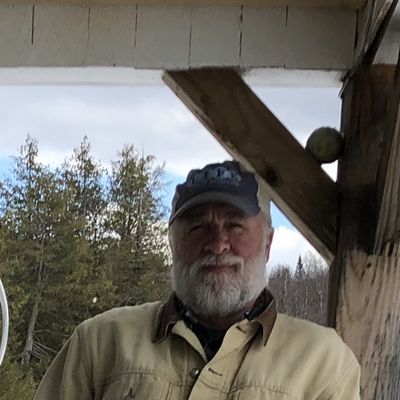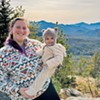Published February 28, 2001 at 3:28 p.m.
When I was much younger, I had a vision of my adult self as married, with a home and family life. In my twenties, I got a husband, house, dogs, gardens, furniture, good jobs, a decent car. By the time I was 31, I also got a divorce.
I believed in marriage, and was stunned and saddened to find myself contributing to the crumbling of a nuclear family. Being suddenly single felt like I’d caught a strange illness. I received all kinds of solicited and unsolicited advice and remedies: introductions, blind dates, suggestions for personal ads, theories on how I got into this situation, why it was so persistent and when I could expect it to end. I was also surprised to find how many “friends” avoided me after the divorce, as if whatever I had might be contagious.
I’ve now been single for as long as I was married. Over the last six years, I’ve been joined in my untethered status by quite a few friends and acquaintances. Many of these — including my ex — have quickly coupled up again. But not me. I remember the pain and confusion of going to bed and waking up alone. I discovered the piercing ache of finding myself still alone. However, as much as I’ve loved the idea of being part of a couple, the reality represented by the marriages I’ve seen and the men I’ve dated has been neither seductive nor appealing enough for me to forego the freedom, independence and power that I’ve found being single.
So why, then, do I still feel that being unattached is a kind of psychic virus that makes people both wary of and worried for me?
I realize that concern and attempts to remedy the unsightly blemish of my solo status may be just the good-natured desire to make sure I am loved and cared for. But it’s hard not to conclude that people also want you to get “well” so they won’t get “infected.” And I have to wonder why the fretting is so much more intense over women than men.
Solitary men are seen as romantic and independent; solitary women as home-wreckers or spinsters. Lone wolves are always male. Lone females are unwanted, suspect or must fend off, Diana-like, overheated suitors convinced of the restorative powers of their attentions. If a woman says, “No thanks,” she’s dubbed a prude, castrating bitch or lesbian. A man, self-controlled and mature. If she says, “Sure, but just for fun,” the name-calling gets worse. For men, it’s high fives all around.
All single women I know have repeatedly heard and even said to ourselves: “You’re so (insert list of positive adjectives here.) I just don’t understand why someone hasn’t scooped you up!” We wonder what hidden flaw lurks within us, keeping partnership at bay. But being single is no more a sure marker of some character failing than being married is a guarantee of emotional health. In fact, one could make the argument that the inverse is true — that you’d have to be nuts to think you could join lives and remain in relative tranquility and happiness with one person for more than seven seconds, much less 20, 50 or more years.
There’s also the implication that whatever wonderful qualities one has are somehow squandered in solitude, a single woman remains unfulfilled if she’s not giving herself to a man and procreating. I’ve heard many stories of indelicate post-divorce questioning along the lines of “Well, you did work a lot, didn’t you?” Um, yeah, and so did he. “Do you think this would’ve happened if you hadn’t gotten so involved in your own activities?” Right, if I’d been by his side around the clock, he might not have drunk too much, cheated on me, been a workaholic, or whatever other failing broke up the marriage.
It still seems that women are judged, and judge themselves, primarily by how they relate to others, and men by how much they accomplish. Most women I know expect themselves to be excellent mothers, wives, employees, housekeepers, schedule coordinators, lovers, cooks, daughters, sisters and in-laws. Bookstores are jammed with tomes proffering advice and counsel, almost solely to women, on how to be better at all these things.
Classes, television programs and magazines are also devoted to assessing and improving how women are doing in doing for others. Singer Shawn Colvin, in spite of her success, still wails, “I’m nobody’s wife, I’ve given nobody life, and I appear to be nobody’s daughter.” It’s hard to imagine a man singing an equivalent ballad.
The men I know ask less of relationships and less of themselves in relationships. I don’t think this is necessarily a bad thing. Although it may help explain why men tend to spend less time between relationships, and why we see so many fortysomething men with twentysomething women. I think it’s healthy to view relationships as primarily companionship, a bonus part of the day, not an external affirmation of a person’s emotional worth and well-being.
Of the couples I know, it’s often relatively easy to get the husband out for a mountain bike ride or snowboarding. The wives are all swamped with their long lists of “To Dos” and “To Do Better.” Exercise, creative pursuits, a quiet, solitary walk, a long soak in a warm tub are at the bottom of the list, somewhere after “get kids through college.” No wonder women are statistically less satisfied with their marriages than men. One relationship can’t possibly re-fuel a tank that’s constantly being driven dry.
Most of the men I’ve dated would describe me with positive adjectives similar to those used by friends. But they’d add words like “independent,” “intense,” “strong,” “challenging,” “self-contained.” The first list is given as a compliment; the latter, a complaint. And yet these descriptives, if applied to a man, are considered desirable, not cautionary. One guy summarized both lists and my love of martial arts with the remark, “Well, you are sort of a James Bond babe.” Let me be clear that this was said by way of explanation, not flattery.
Why is it that the female secret agent, no matter how skilled, ends up rescued by Bond, both literally and sexually? Why does beautiful, smart, accomplished Helen Hunt chase after the cad Mel Gibson, even though he’s lied to and manipulated her? Why are men in their fifties credible romantic partners for women in their twenties, when the inverse is considered absurd? Why is suicide the only option for Thelma and Louise? Why does the audience give a collective sigh of relief when we see the solitary heroine finally enveloped in the hero’s big, strong arms?
We are uncomfortable with the idea of a woman alone. Men see her as something to be conquered, and women as a potential threat. If I’m eating alone at a restaurant with a book for company, some men seem to think I’m really there in hopes of chatting with them. I know married men who think their wedding rings are all that’s keeping me from inviting them upstairs.
Perhaps some of this comes from our cultural compulsion to stamp loved ones with a name, mark or totem that tells the rest of the world they are “mine, mine, mine.” Relationships are no less rich or rewarding just because they’re not connected through blood or law. Since there have always been deep fractures among the people I was related to, I’ve “borrowed” families. And I’ve been fortunate to have friends who are trusting and generous with their relations. I bike with other people’s husbands and send them home dirty and tired. I spend holidays visiting nursing homes with my dogs or breaking bread with and messing up the homes of other people’s relatives. I’ve nurtured plenty of kids, just not through an umbilical cord. A guy I dated used to complain, “you just don’t seem to need me.” I told him he was right, but wouldn’t he prefer my desire to my need? Appar-ently he didn’t, but I do.
I think of human relationships as a full-contact sport and am fortunate to know people who want to play on this rough-and-tumble field. But off the field, being alone isn’t a burden or a curse. I’ve found that solitude and loneliness are different emotional reactions to the same condition. Being solitary is clean, sharp and blameless, like a gust of frigid air on a winter’s day. Being lonely is that same wind on unprotected skin. And being lonely while in a relationship is a biting blast when someone you love won’t share his coat.
I love my solitude. It provides me wide expanses of untrammeled time to explore the world, to write, read and create, to develop a variety of relationships with a variety of people. Sure, I’d love a real-deal, main-squeeze partner in life. It would be great to have someone to help shovel snow off the roof. Or massage the muscles I pull doing it myself. Or take me to the hospital if I slip. While friends will do those things for me, I know that the day-to-day can be easier and more fun when two people are deeply engaged in making their lives work, singly and together.
I was asked recently if I thought I’d be a better partner the next time around, having spent so much time single. When I think back to my time as a spouse, I see someone who followed the pattern of so many married women, scurrying around to keep up with the needs of my husband, my home, my in-laws. I think the next time around — if there is one — I will probably share my feelings in a slightly less frenzied way, holding back more energy and enthusiasm for myself. I know that this would make me a better, more contented and happier person. I can only hope there’s someone out there who thinks it would also make me a better partner.
As a woman, being a soloist in your life takes a certain amount of, well, balls. You’re more exposed and have much more individual responsibility than those deep within the collective clamor of a full orchestra. But playing solo — especially with the help of a great back-up ensemble — has shown me that when I focus on bringing whatever talents, passions and sweat I have to expressing the music in my head, I’m always thrilled with the company that shows up to listen and, sometimes, join in.
Speaking of...
-

Video: Musicians Jeremiah and Annemieke McLane Move into their New Home
Mar 24, 2022 -

Creating Art That Celebrates the Culture and Climate of Places Around the Globe
Jun 29, 2021 -

Video: Storyteller Ferene Paris Meyer Inspires a Juneteenth Mural
Jun 17, 2021 -

Arts and Culture Nonprofits to Receive $5 Million in State Relief Grants
Jul 7, 2020 -

18 Elm in Waterbury Creates Community at the Table
Jul 9, 2019 - More »
Comments
Comments are closed.
From 2014-2020, Seven Days allowed readers to comment on all stories posted on our website. While we've appreciated the suggestions and insights, right now Seven Days is prioritizing our core mission — producing high-quality, responsible local journalism — over moderating online debates between readers.
To criticize, correct or praise our reporting, please send us a letter to the editor or send us a tip. We’ll check it out and report the results.
Online comments may return when we have better tech tools for managing them. Thanks for reading.











































